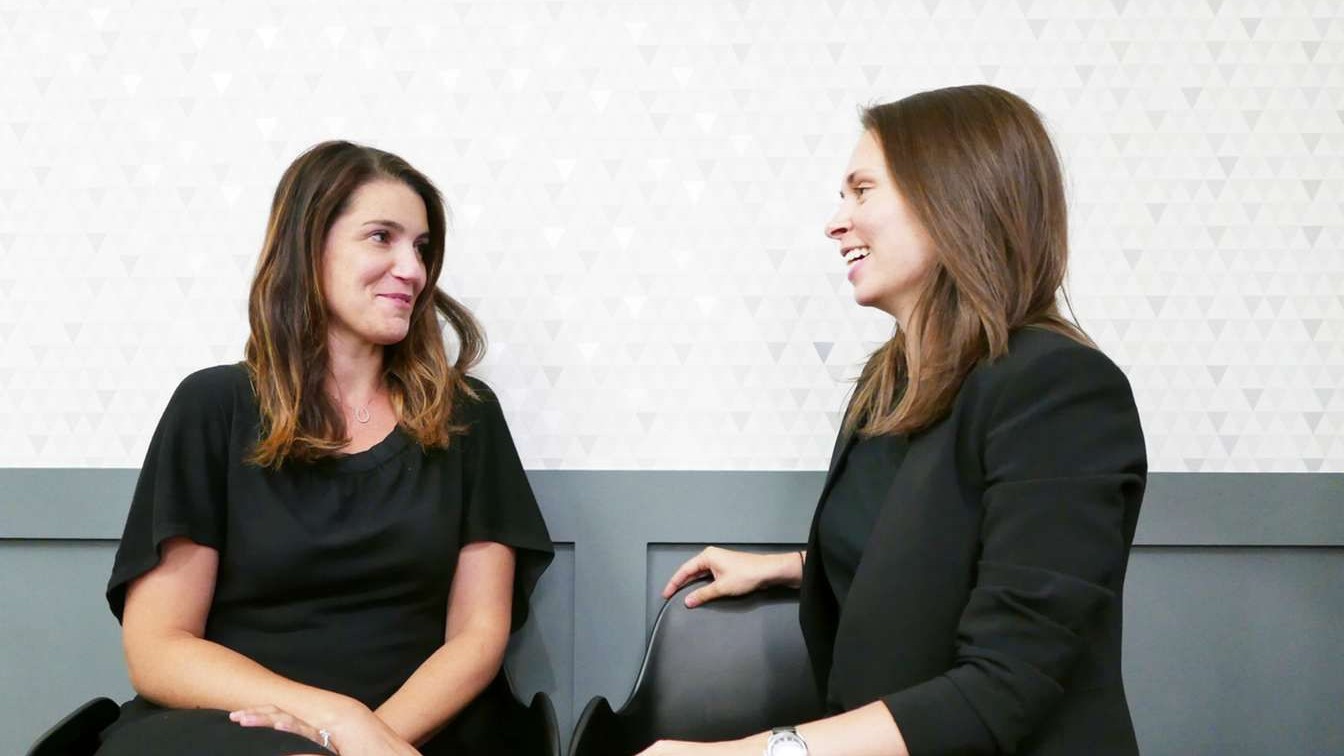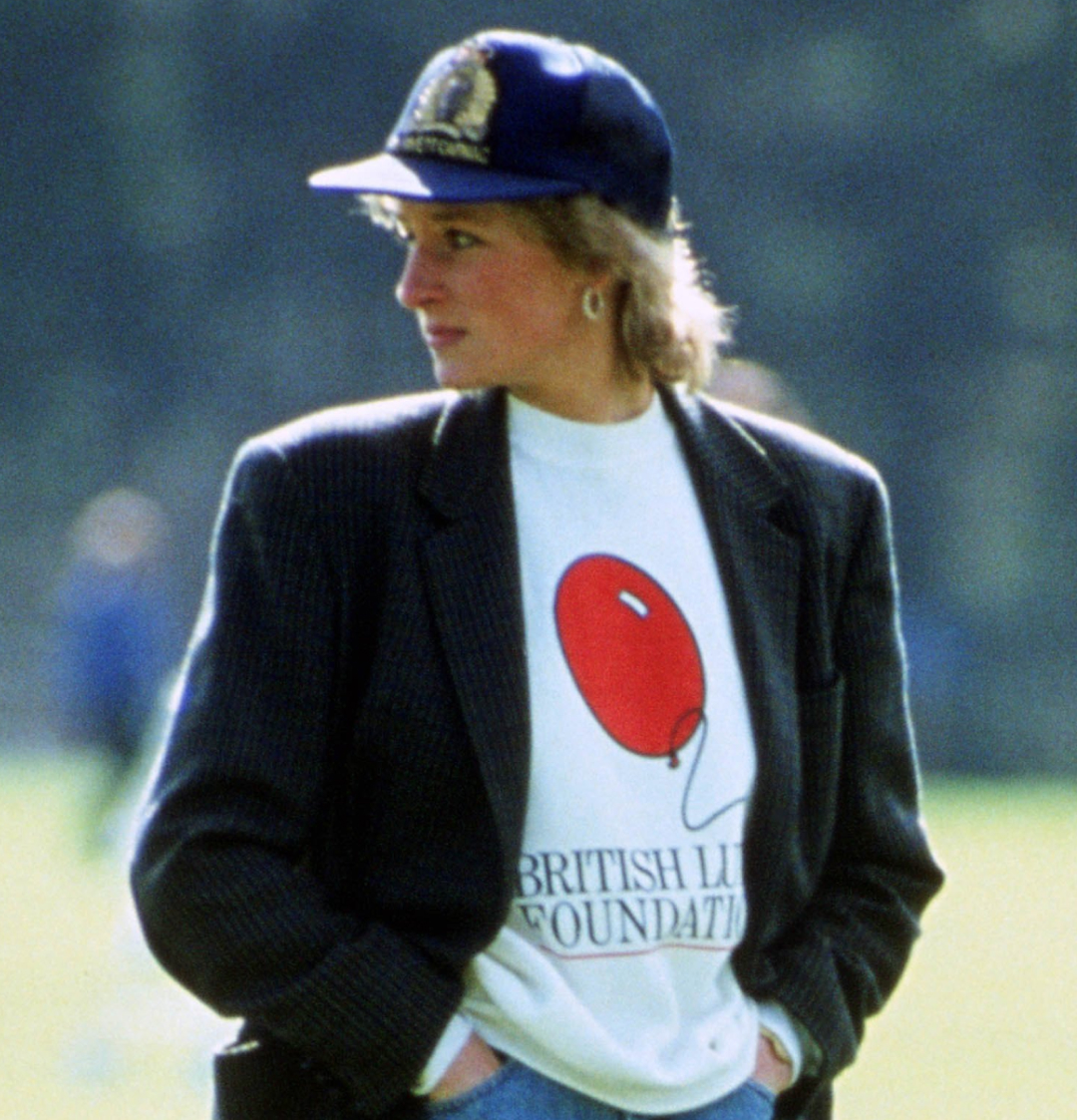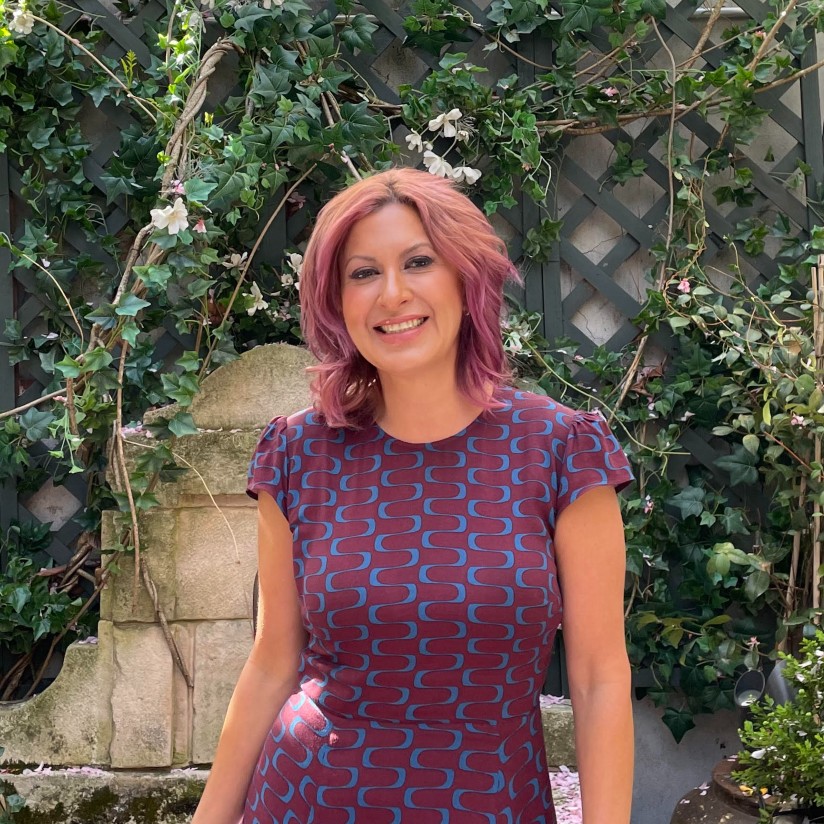Why the Non-9-to-5 Is the Future of Feminism
Flexibility comes first. Then, the revolution.
Imagine a world where women didn't have to choose between a rewarding career and a fulfilling family life. Werk, a platform connecting ambitious women to flexible career opportunities, is bent on making it happen.
In February, Annie Dean and Anna Auerbach cofounded the company out of their frustration with the lack of flexibility for women in the job market today—there simply aren't enough roles for women who are both career-driven and dedicated caregivers. Using their joint skill sets, Dean and Auerbach created what is now a booming startup (Anne-Marie Slaughter is an adviser), which partners with growing and established companies to find competitive part-time and full-time jobs that match with women's lifestyles.

Here, we speak with the cofounders about their business mission, flexibility in the workplace, and the future of feminism.
Marie Claire: What's Werk's primary mission, and how does the company function?
Annie Dean: Werk is a marketplace for flexible opportunities for ambitious women. Our generalized thesis is the leadership track is broken, and what we need to do to fix it is to keep talented women in the workforce. We need to have jobs that are compatible with women's lives. If you have incompatibility, it's a lot of waste. It's a waste for the woman in terms of her time and energy. It's a waste for the company in terms of their resources. But, if we create compatibility, we allow women to steer through this difficult period in their lives, especially with young children, to stay in the workforce, gain skills, and ultimately remain on the leadership path. One of the crucial things about our company is that we believe that flexibility is not a lifestyle bonus, it's not a perk, it should not be discussed that way. It is a strategic solution to the systemic disenfranchisement of women from the leadership pipeline.
Anna Auerbach: We're also getting companies a competitive advantage, that's the bottom line. We get very passionate about the social mission, but there's a true business and competitive advantage here. Gender-diverse companies outperform the baseline by 15 percent, so we're letting companies get to that. The better decisions made, the more diverse your leadership team and staff are.
"The leadership track is broken, and we need to fix it to keep talented women in the workforce."
MC: How are you making all this happen?
Stay In The Know
Get exclusive access to fashion and beauty trends, hot-off-the-press celebrity news, and more.
AD: We talk to the companies in advance and say you can only be on our platform if you offer flexibility as part of this position. We have amazing job opportunities, and the fact that they have flexibility built in makes it more of a dream job. The women need to close the deal for themselves. We're empowering them to have a negotiation where they come into that negotiation from a strong position instead of a defensive position, and we're giving them the tools and the lexicon to advocate for themselves in a way that would help them win. It's interesting because they are still going to close the deal for themselves, but I feel like this is the biggest part of changing the conversation around how this works.
MC: What are some of the primary concerns you're hearing from women in the workplace?
AD: Nobody is speaking for them. Everybody is talking about work-life balance like it's this lifestyle, but nobody is saying, "Hey, you're smart. You deserve to work, you deserve to follow your dreams, and we're going to build a future where you can." In that way, people recognize and are drawn to the message that we are putting out there and feel supported and inspired by what we're trying to do. We get emails constantly being like, "I will do whatever you need." And I'll be, like, "Okay, can you just forward this email to five friends?"
AA: We get some stories, but we also get all these emails that are saying thank you. I feel better now that I know that this exists, and so it's amazing.
MC: How did Anne-Marie Slaughter get involved with the project as an adviser?
AA: We cold-emailed her pretty late at night and by the time I woke up, we had an email in our inbox from her, which was amazing. And she said, "I'm really busy, but sure, let's talk." We had this amazing call with her, and a lot of what she talks [about] in her book is what we're trying to build a business on. Her whole thing is that we, as a country, chronically undervalue care. Think about how our teachers are paid, our nurses, anybody who's caring for people is chronically underpaid. In the same way, that's why there's a motherhood penalty and a fatherhood bonus at work because we undervalue care and we undermine ourselves.
"The previous generation fought way too hard for women's rights to now have us not have the option to choose."
MC: It's paradoxical that the United States is a country that champions family values, yet we aren't supportive of women who have careers while being mothers.
AD: That's the problem: We can't do it all or have it all if no one is going to support us in that endeavor. We need work environments that allow us to fluctuate between our roles at home and our roles at work, which are both extremely important to us. We believe that the future of the women's movement is a place where caregiving and ambition are valued equally. If you surveyed my friends, they would've been like "She's going to be the last person to have kids, because she's always going to take her career more seriously." Of course, the way that things work out, I was the first person to have kids, and I ended up being on a totally alternative career path. But that's important to me. That defines me, and I need to be able to recognize and realize my career ambitions in the context of this life that I want to live at home.
MC: How is the conversation around women having flexibility in the workplace changing now?
AA: A lot of what this is about is normalizing the conversation. Work does not have the structure to allow women to do these sorts of things and to value multifaceted lives. We often think if we just work hard enough, we'll fix it, and research shows women are often less strong negotiators. Generally, research pans out that women don't like to advocate for themselves, they don't like to negotiate, so you put that together with hardworking women, and you have a perfect storm of super-ambitious women who are too afraid to ask because they are going to be unsupported—and they're going to be unsupported in a lot of situations. We just have this perpetuation of women basically working [and] getting to the point where they are like, "I can't do this anymore," so they either keep working and are miserable, or they just quit. We are losing billions of dollars in the economy from women leaving the workforce. The previous generation fought way too hard for women's rights to now have us not have the option to choose. If a woman wants to stay at home, all the power to her, we respect it. It's more than a full-time job, but what we don't want is all the women that want to be working feeling like they are forced to opt-out.
Follow Marie Claire on Facebook for the latest celeb news, beauty tips, fascinating reads, livestream video, and more.
-
 Let's Go, PPG, Fans! A New Peacock Series Starring the 'Love Island USA' Season 6 Cast Is Coming Soon
Let's Go, PPG, Fans! A New Peacock Series Starring the 'Love Island USA' Season 6 Cast Is Coming SoonWe're already clearing our summer schedules for 'Love Island: Beyond the Villa.'
By Quinci LeGardye
-
 Why Princess Diana Didn't Move to America
Why Princess Diana Didn't Move to AmericaThe late royal's friend opened up about the princess's American dream.
By Kristin Contino
-
 Anne Hathaway Doubles Down on Luxury's Favorite Neutral
Anne Hathaway Doubles Down on Luxury's Favorite NeutralShe painted herself in the timeless hue.
By Kelsey Stiegman
-
 Peloton’s Selena Samuela on Turning Tragedy Into Strength
Peloton’s Selena Samuela on Turning Tragedy Into StrengthBefore becoming a powerhouse cycling instructor, Selena Samuela was an immigrant trying to adjust to new environments and new versions of herself.
By Emily Tisch Sussman
-
 Why I Added Back My Maiden Name—and My Mother’s Maiden Name
Why I Added Back My Maiden Name—and My Mother’s Maiden NameKatie Ann Echevarria Rosen Kitchens, the cofounder and chief curator at FabFitFun, knows her name is a mouthful. But changing her name celebrates her Latinx roots and feminism.
By Katie Ann Echevarria Rosen Kitchens As Told To Tanya Benedicto Klich
-
 'She Pivots': Reshma Saujani, the Founder of Girls Who Code, Wants To Debunk the 'Big Lie of Corporate Feminism'
'She Pivots': Reshma Saujani, the Founder of Girls Who Code, Wants To Debunk the 'Big Lie of Corporate Feminism'In the 'She Pivots' podcast, Saujani talks about her career's many twists and turns.
By Emily Tisch Sussman
-
 This Mutual Fund Firm Is Helping to Create a More Sustainable Future
This Mutual Fund Firm Is Helping to Create a More Sustainable FutureAmy Domini and her firm, Domini Impact Investments LLC, are inspiring a greater and greener world—one investor at a time.
By Sponsored
-
 Power Players Build on Success
Power Players Build on Success"The New Normal" left some brands stronger than ever. We asked then what lies ahead.
By Maria Ricapito
-
 Don't Stress! You Can Get in Good Shape Money-wise
Don't Stress! You Can Get in Good Shape Money-wiseFeatures Yes, maybe you eat paleo and have mastered crow pose, but do you practice financial wellness?
By Sallie Krawcheck
-
 The Book Club Revolution
The Book Club RevolutionLots of women are voracious readers. Other women are capitalizing on that.
By Lily Herman
-
 The Future of Women and Work
The Future of Women and WorkThe pandemic has completely upended how we do our jobs. This is Marie Claire's guide to navigating your career in a COVID-19 world.
By Megan DiTrolio